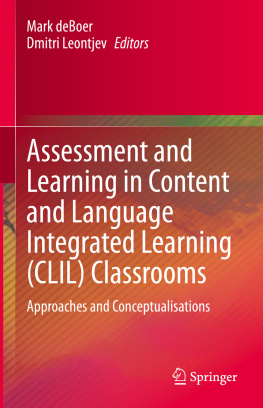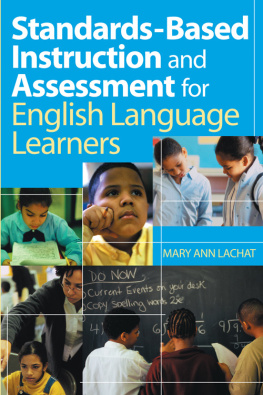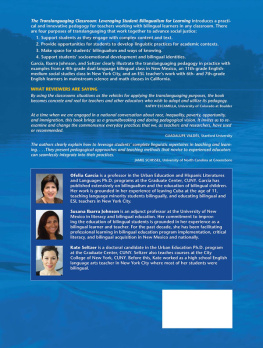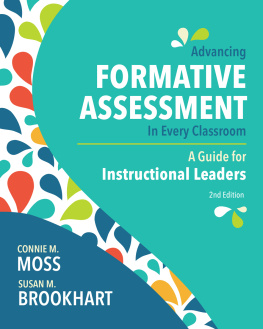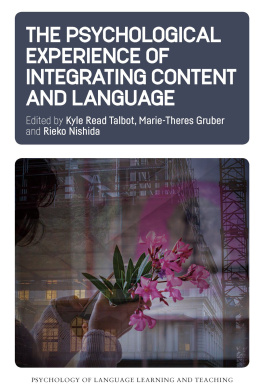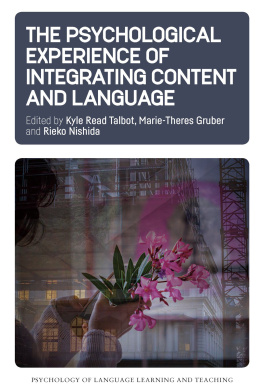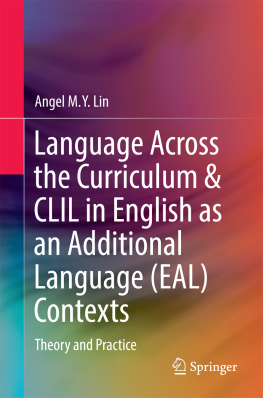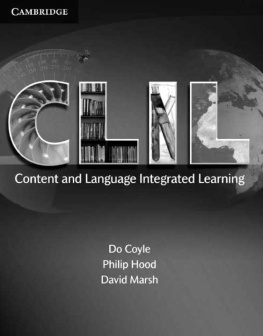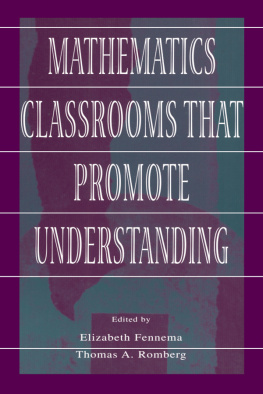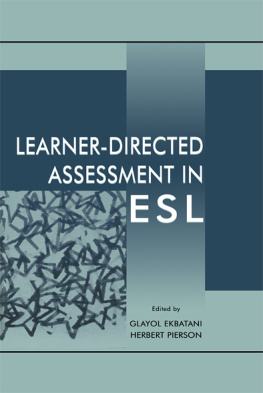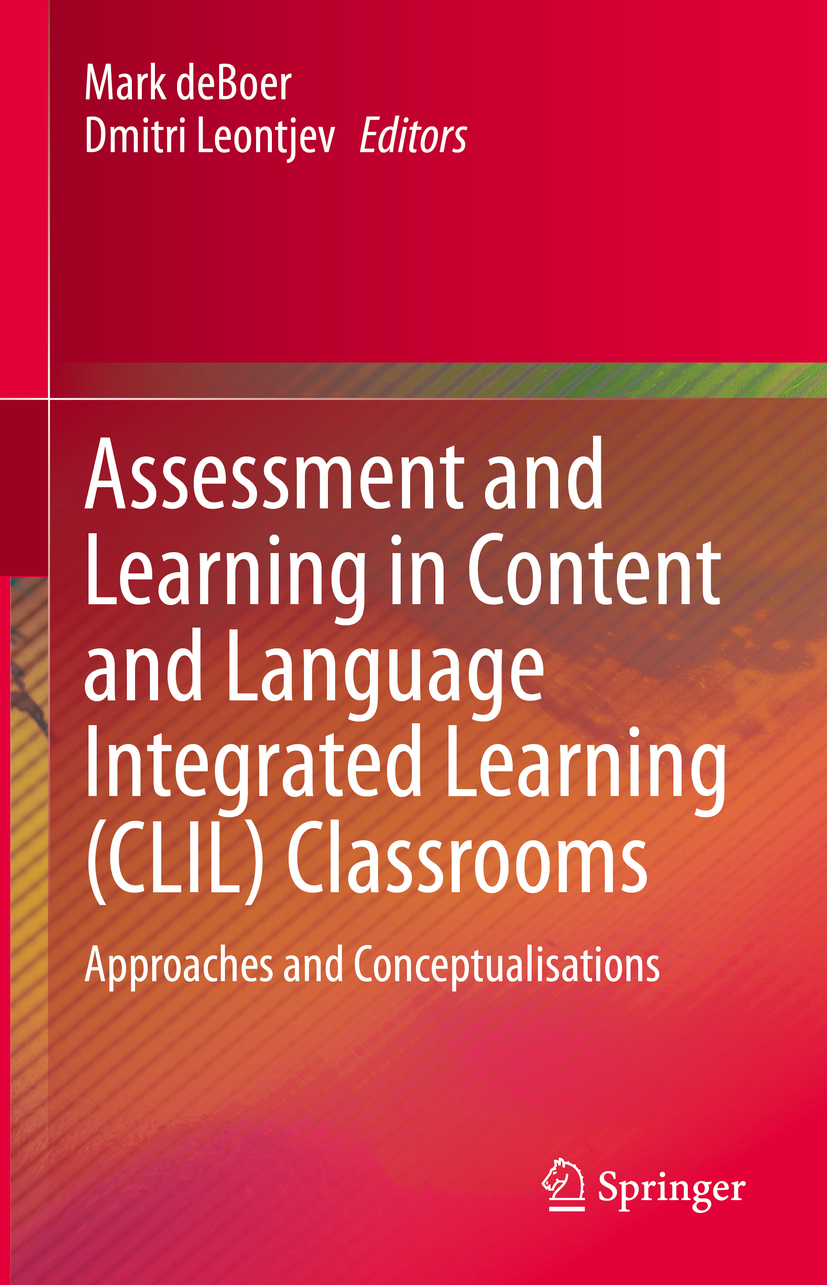Editors
Mark deBoer
English for Academic Purposes, Akita International University, Akita, Japan
Dmitri Leontjev
Department of Language and Communication Studies, University of Jyvskyl, Jyvskyl, Finland
ISBN 978-3-030-54127-9 e-ISBN 978-3-030-54128-6
https://doi.org/10.1007/978-3-030-54128-6
Springer Nature Switzerland AG 2020
This work is subject to copyright. All rights are reserved by the Publisher, whether the whole or part of the material is concerned, specifically the rights of translation, reprinting, reuse of illustrations, recitation, broadcasting, reproduction on microfilms or in any other physical way, and transmission or information storage and retrieval, electronic adaptation, computer software, or by similar or dissimilar methodology now known or hereafter developed.
The use of general descriptive names, registered names, trademarks, service marks, etc. in this publication does not imply, even in the absence of a specific statement, that such names are exempt from the relevant protective laws and regulations and therefore free for general use.
The publisher, the authors and the editors are safe to assume that the advice and information in this book are believed to be true and accurate at the date of publication. Neither the publisher nor the authors or the editors give a warranty, expressed or implied, with respect to the material contained herein or for any errors or omissions that may have been made. The publisher remains neutral with regard to jurisdictional claims in published maps and institutional affiliations.
This Springer imprint is published by the registered company Springer Nature Switzerland AG.
The registered company address is: Gewerbestrasse 11, 6330 Cham, Switzerland
Foreword
Effectively used, formative assessment stimulates, amplifies, accelerates, and importantly deepens learning. In fact, deep learning is dependent on robust systems of assessment, in particular the ongoing thoughtful use of formative assessment (Fullan et al. 2018). Not using assessment in a knowledgeable and thoughtful manner as a tool for supporting learning is not a defensible option. Hence, Assessment and Learning in Content and Language Integrated Learning (CLIL) Classrooms: Approaches and Conceptualisations is a welcome contribution to the discourse on classroom-based assessment in CLIL contexts. It will help frame conversations about assessment in CLIL whilst also offering practical ideas for using assessment to support the learning of both content and language. Importantly, it also guides readers to diverse national and international resources.
Much as assessment can be a powerful and positive driver of learning, it can also thwart learning and indeed cause harm to individuals and education systems. As Scott (2010) and Stobart (2008) argue, assessment, particularly in high-stakes contexts, can have serious unintended negative consequences often referred to as negative washback effects. These can occur at the macro level affecting an entire system or at the micro level affecting the individual. On the macro level, over an extended period of time, high-stakes tests can lead to a reduction in the knowledge, skills and dispositional states that we value and teach, and this in turn can eventually lead to an impoverished learning environment. On the micro level, ineffective use of assessment can undermine students and teachers beliefs in their own efficacy, agency and capacity to be successful.
Assessment constitutes a potent mix of possibilities and risks. Importantly, thoughtful evidence-based formative assessment holds great potential, and can act as a strong counterweight to the possible negative effects of high-stakes summative assessment. When teachers and students have discussed/negotiated intended learning outcomes; when the criteria being used to measure achievement have been jointly explored and agreed upon; when students know what success looks like; when students have substantial opportunities for well-structured self- and peer-assessment throughout the learning process; when there are several feedback/feedforward loops built into a meaningful learning progression, which allow students to work at applying feedback/feedforward to improve their learning; when teachers seek to understand if and how feedback/feedforward has been taken on board; and, finally, when both teachers and students reflect on and discuss how teaching and learning practices need to change based on evidence, then formative assessment has the potential to be a particularly positive and powerful tool for deepening thinking and learning.
This is likely for several reasons. If we have a sense of where we want to go, we are more likely to get there. If we have clarity in what constitutes quality, we are more likely to be able to create it. Similarly, if we can measure our progress in learning, we are more likely to be able to manage it. If we have a grasp of what deep learning looks and feels like, we are more able to seek it out. In other words, the effective use of formative assessment imposes greater intellectual demands on all involved. Teachers and students cannot hide behind generalities imputing diverse meanings to vague intended learning outcomes, or operate with only a general notion of what quality looks like and how it will be measured, or provide each other with only general feedback without being challenged to explain further. The editors of this volume and several of the contributors rightly argue that intended content and language learning outcomes, criteria, exemplars, feedback/feedforward, as well as self- and peer-assessment all need to cohere as part of the integrated and dynamic whole that constitutes thoughtful assessment whose purpose is to promote learning.
As students and teachers experience several feedback loops, this creates additional opportunities to reflect on their work, to think more deeply about what they are doing and trying to achieve. This reduces the possibility of doing work quickly and superficially. It also means students are likely to become more able and active partners in the learning process and not simply accept judgements and unhelpful feedback from others. Formative assessment can help students gain greater control over the learning process. Feeling some level of independence, power and control over our lives is a fundamental psychological need, and if this is denied to students, they will seek ways of satisfying that need in a manner that may well impede their learning (Frey and Wilhite 2005).
This volume wisely points out the role of affect in the learning process. [T]he aspects of cognition that are recruited most heavily in education, including learning, attention, memory, decision-making, motivation and social functioning, are both profoundly affected by emotion and in fact subsumed within the processes of emotion (Immordino-Yang and Damasio 2007, p. 37). Assessment can be comfortably added to that list. According to a meta-analysis of 213 social-emotional learning programmes by Durlak et al. (2011), students who are taught social and emotional skills not only become more socio-emotionally competent but also see on average an 11% increase in their achievement on high-stakes tests. Sklad and colleagues (2012) also conducted a meta-analysis of 75 social and emotional learning programmes and found similar results. Formative assessment involving self-reflection and peer-reflection is an important vehicle for the development of self-regulation skills.

